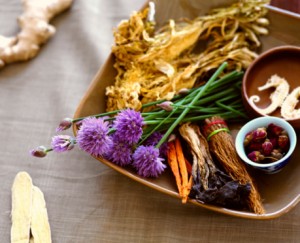Numerous people today, particularly those from America, Europe and Australia are seeking alternative treatments in Asian countries. Oftentimes, they find Asian treatments more affordable than in their own place and being in a different country also allows them to visit great tourist attractions at the same time. That’s hitting two birds with one stone.

China, India and Thailand are among the Asian countries that offer a wide range of alternative treatments also called complementary or alternative medicine (CAM). These include herbal therapy, traditional Chinese medicine, ayurveda and hypnosis, among many others.
The National Center for Complementary and Alternative Medicine (NCCAM) in the U.S. classifies these treatments as mind-body medicine, whole medical systems, biologically-based practices, energy medicine and manipulative and body-based practices. They can also be a combination of these categories.
China
The traditional Chinese medicine (TCM) originated in China although it is now offered in many other countries these days.
Acupuncture is a popular Chinese treatment under the TCM. It uses very fine needles that are punctured on the different parts of the body to relieve pain and enable a person to regain his energy.
India
India is well known for its ayurvedic treatment, a Hindu alternative medicine. It makes use of plant-based medicines including cinnamon and cardamom. Other products that may also be used are milk, gallstones, minerals such as sulfur, arsenic and copper sulfate.
This Indian treatment focuses on hygiene and attaining balance. Balance in this kind of system refers to moderate food intake, sleep and sexual intercourse.
Thailand
Thailand is also very famous for its alternative treatments. These include aromatherapy, sauna, live cell therapy, colon hydrotherapy, yoga, hypnotism and weight loss programs.
Thai traditional medicine is influenced by the Indian and Chinese systems and is practiced as well in neighboring countries such as Cambodia, Lao and Myanmar. It emphasizes the use of plants and normally covers herbal saunas, herbal medicines, herbal steam baths, reflexology, acupressure and hot compresses.
Currently, Thailand has its National Institute of Thai Traditional Medicine which falls under the Department of Medical Services. Professionals practicing traditional medicine in the country earn a degree in allopathic medicine from traditional medicine schools. A three-year training is required for allopathic practitioners who want to practice traditional medicine. They also need to pass an exam administered by the Commission for the Control of the Practice of the Art of Healing and obtain a license.
Foreign visitors who wish to undergo training in allopathic medicine in the country are advised to learn Thai for faster communication with the locals and their instructors.
Photo via amazingrate.com
Originally posted on December 10, 2012 @ 2:32 pm